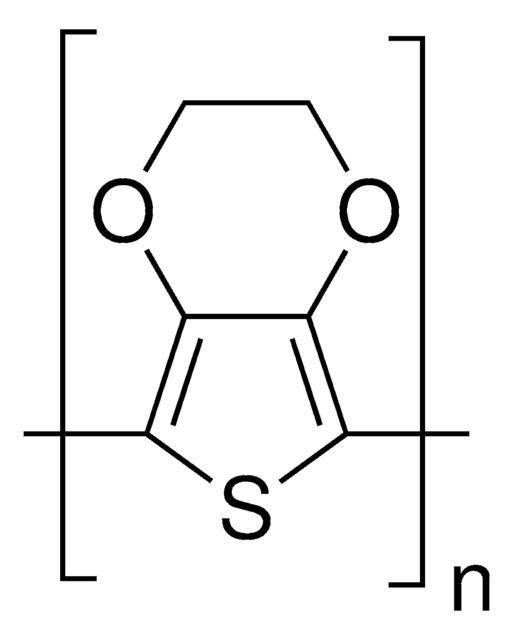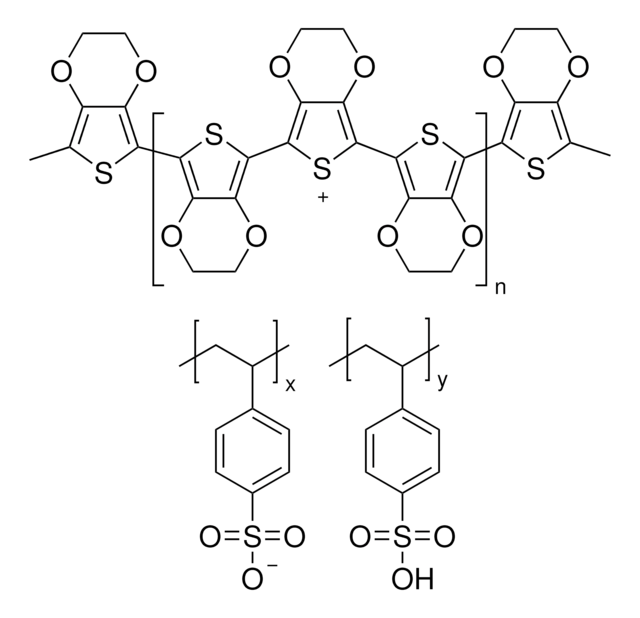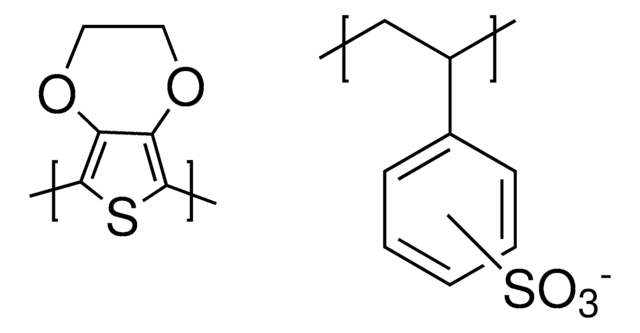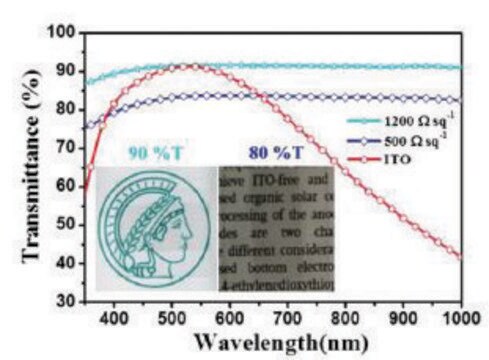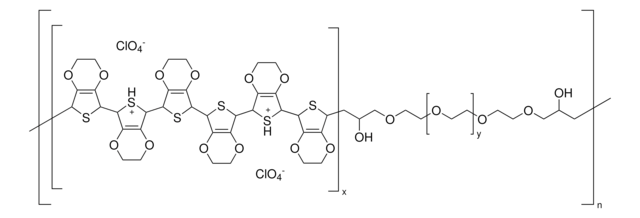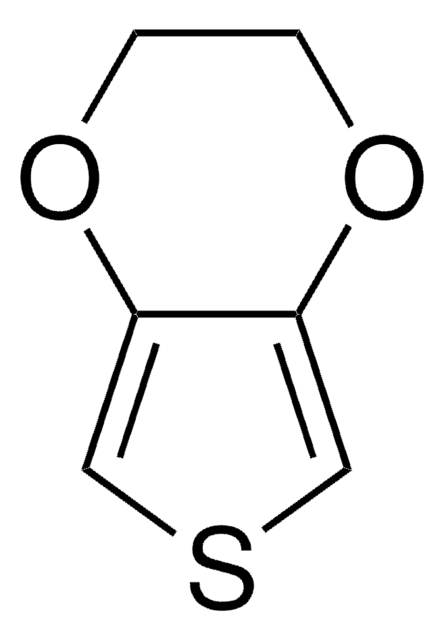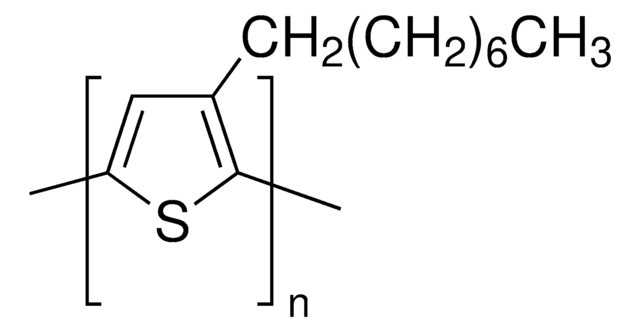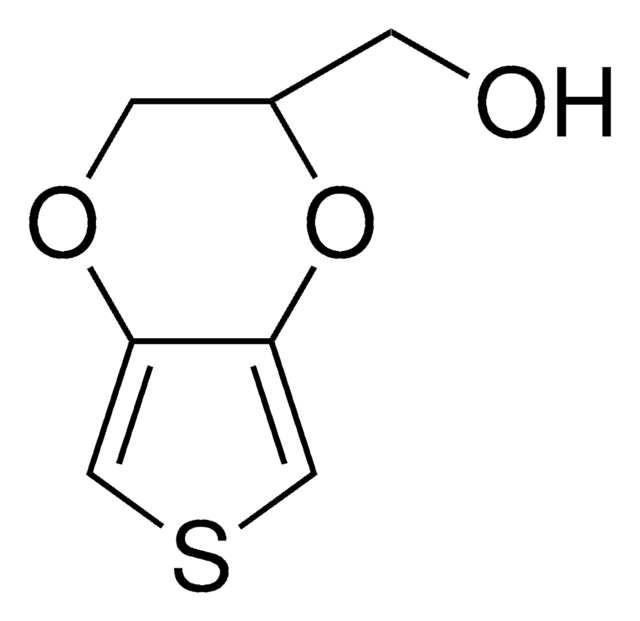678392
PEDOT
nanotubes, hydrate
Synonym(s):
PEDOT, Poly(2,3-dihydrothieno-1,4-dioxin)
About This Item
Recommended Products
product name
Poly(3,4-ethylenedioxythiophene) hydrate, nanotubes
form
nanotubes
L × I.D. × O.D.
~11.49 μm × 272.4 nm × 416 nm, TEM
General description
Application
Storage Class Code
11 - Combustible Solids
WGK
WGK 3
Flash Point(F)
Not applicable
Flash Point(C)
Not applicable
Regulatory Listings
Regulatory Listings are mainly provided for chemical products. Only limited information can be provided here for non-chemical products. No entry means none of the components are listed. It is the user’s obligation to ensure the safe and legal use of the product.
JAN Code
678392-500MG:
678392-VAR:
678392-BULK:
Choose from one of the most recent versions:
Certificates of Analysis (COA)
Don't see the Right Version?
If you require a particular version, you can look up a specific certificate by the Lot or Batch number.
Already Own This Product?
Find documentation for the products that you have recently purchased in the Document Library.
Customers Also Viewed
Articles
Conjugated polymers offer charge transport between inorganic, electrically conducting metals and organic, proton-conducting biological systems.
Our team of scientists has experience in all areas of research including Life Science, Material Science, Chemical Synthesis, Chromatography, Analytical and many others.
Contact Technical Service